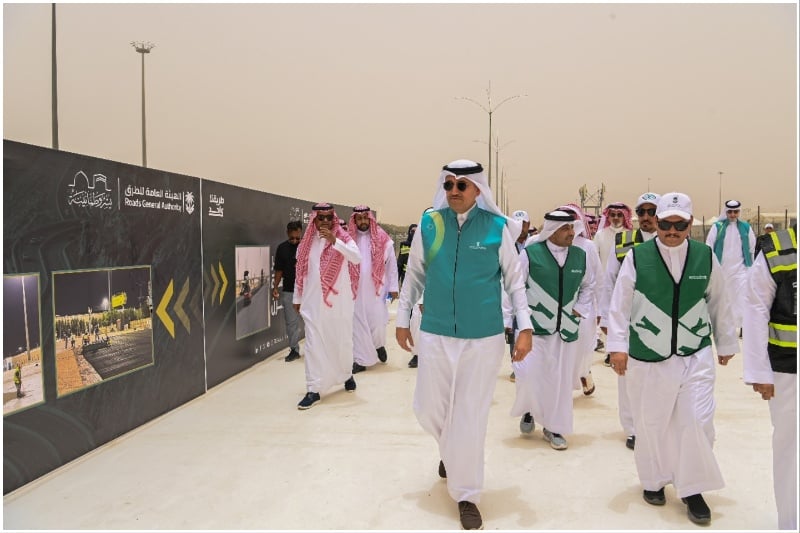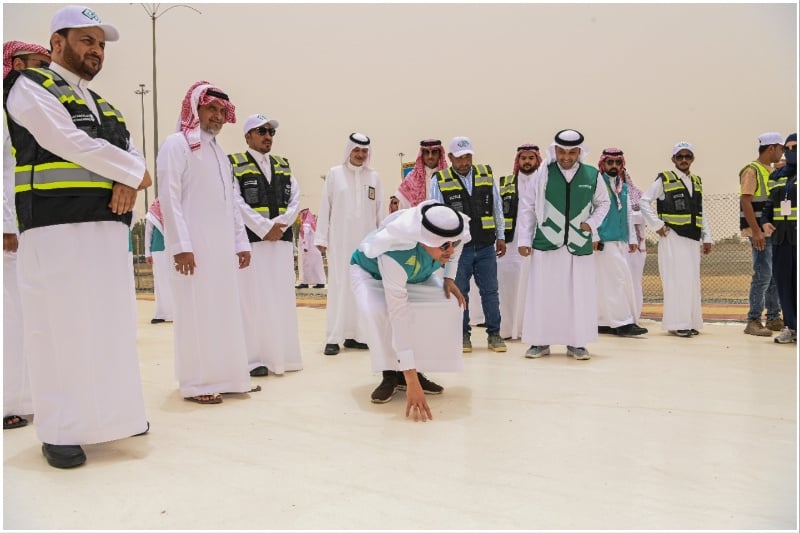Beat the heat with this cooled pedestrian walkway in Makkah
As temperatures soar, heat-reflective roads and soft walkways offer critical relief for millions during the Hajj…
The Holy City of Makkah is introducing a new way to beat the heat – a cooled pedestrian walkway. This initiative aims to support pilgrims and individuals with disabilities, particularly during the high temperatures of the Hajj season.
The walkway is part of the Kingdom’s broader initiative for cooled roads, which has expanded by 82 per cent since its launch in 2023, according to the Roads General Authority (RGA).

Over 84,000 square metres of roads in Arafat have now been paved with locally sourced recycled materials intended to minimise heat absorption from sunlight.
How do they work?
These materials reduce surface temperatures by approximately 12°C and reflect 30 to 40 per cent more sunlight during the morning hours, helping to alleviate urban heat and creating a more comfortable environment for pilgrims while also lowering energy consumption and air pollution.
A key addition is the 4,000-metre accessible pedestrian path leading to Mount Arafat, constructed with cooled paving to minimise vibrations and enhance mobility for individuals with disabilities and their companions.
The project also includes flexible rubber asphalt surfaces, which have increased by 33 per cent to now cover 16,000 square metres. These surfaces, utilised in pedestrian areas between Namira Mosque and Arafat Train Station, are designed to soften impact and provide greater comfort, particularly for older pilgrims.

Research conducted by the Road Research Centre has confirmed the increased comfort and safety of this advanced rubberised material.
The initiative also features a green corridor with trees planted along a 1,200-metre stretch and includes air-cooling mist systems and water fountains, developed in collaboration with the Abdulrahman Fakieh Charitable Foundation.
As the national regulator of Saudi Arabia’s Road sector, RGA aims to elevate the quality of roads to rank sixth globally by 2030 and reduce road fatalities to fewer than five per 100,000 people.
Saudi Arabia currently boasts the world’s premier intercity road connectivity, with a total network surpassing 73,000 kilometres.
Images: RGA
